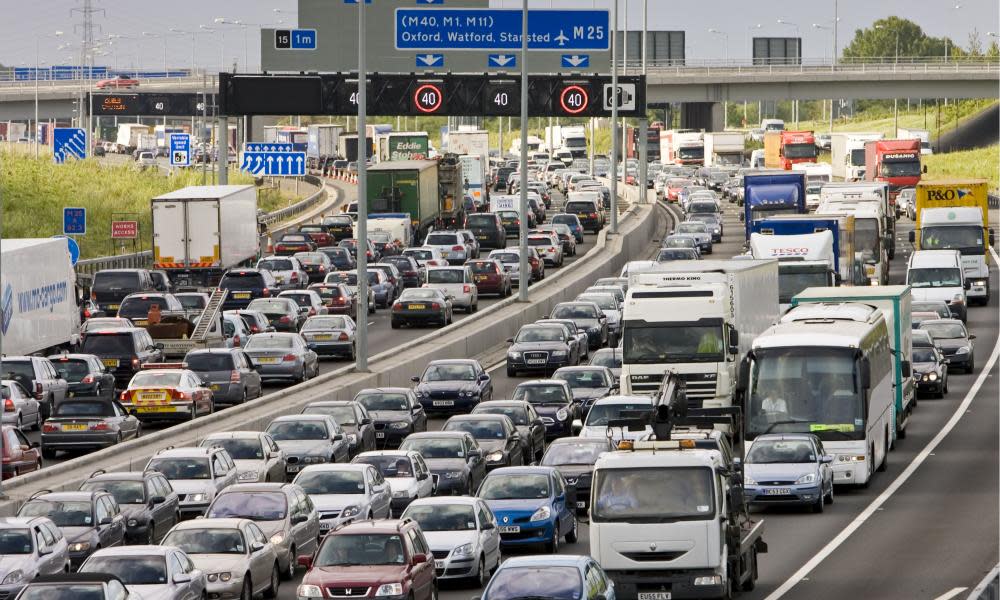We know polluting cars are killing us. So why do we put up with it? | Abi Wilkinson

If petrol and diesel vehicles were invented today, what possible justification would there be for allowing unchecked ownership? Knowing all we do about the damage wrought by burning fossil fuels – both to our immediate health and to the long-term viability of our habitat – it would seem an act of obscene, destructive decadence. The idea of driving a monstrous, tank-like 4x4 a distance you could easily walk or cycle, and then sitting outside a school (a school!) with the engine still running, guzzling petrol and burping out poison into the surrounding air, would be seen as actively malevolent.
If such vehicles were allowed at all, they would surely be strictly regulated. Disabled people might be able to claim special dispensation because of the unique mobility difficulties they face. And perhaps people who live in very rural areas might also be permitted to own vehicles, on the basis that regular public transport isn’t viable. Certainly, things wouldn’t be like they are now.
It doesn’t matter what new evidence is produced about the effects of air pollution. The extra 40,000 early deaths a year in the UK alone – roughly 10 times as many people as killed by drug overdoses. The irreversible damage it causes to children’s lungs while they’re still developing. The increased risk of miscarriage for pregnant women. The vicious cycle of air pollution driving climate change, which then increases air pollution levels independently of other factors. By now, most of us are at least vaguely aware of the facts. Yet it’s impossible to suggest that driving unnecessarily is not a morally neutral act without immediately getting people’s backs up.
It’s hard to envisage what might shake us out of our collective complacency. A report released by the British Lung Foundation today, suggesting that lung disease admissions to hospitals in England and Wales have risen at three times the rate of other conditions, should generate widespread concern. Instead, it has been greeted with a shrug. A sympathetic reading is that the evidence on environmental damage is simply too overwhelming. We’re constantly bombarded with ominous warnings about the impending climate apocalypse. The issue is so overwhelming that we feel helpless as individuals – so it’s easier to put it to the back of our minds.
But the effects of pollution are also immediate and local. We might not be able to save the planet by driving less frequently, but we could make a meaningful difference to our and others’ health. It’s not only pedestrians and cyclists who are poisoned by the toxic emissions from vehicles. Health experts believe that the effects are even worse for passengers inside the car.
The UK government’s current target is banning the sale of petrol and diesel cars and vans (including hybrids) by 2040 – welcome acknowledgment of the issue, but still inadequate. Driving needs to be recognised as the dangerous, harmful activity it is. We should come to see car journeys as a last resort, something we choose only if other options are unavailable. I count myself among those who’ve been far too complacent about the damage caused by this and other lifestyle choices, but a cultural shift is well overdue.
• Abi Wilkinson is a freelance journalist

 Yahoo News
Yahoo News 
